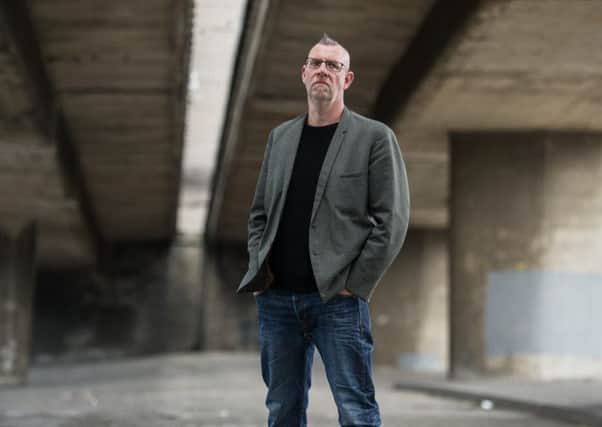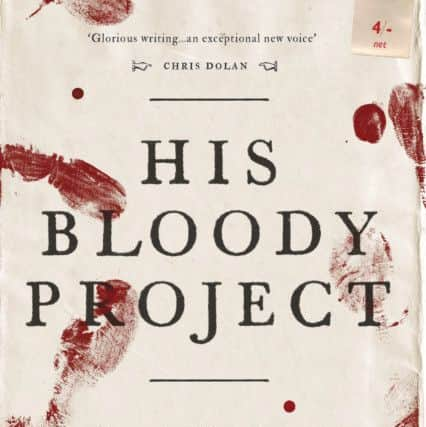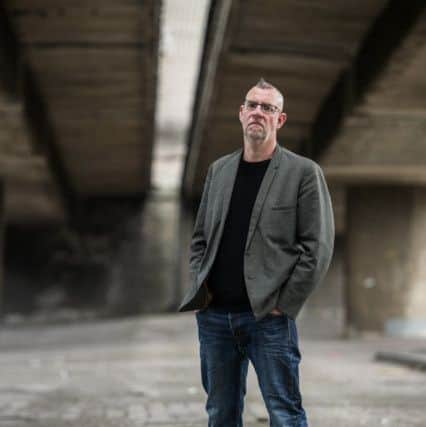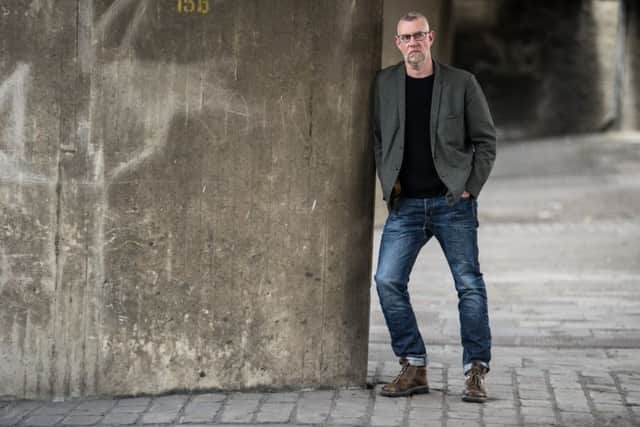Interview: Graeme Macrae Burnet on His Bloody Project and Man Booker Prize nomination


Five days before we meet in Glasgow, an Australian publisher signed a deal to publish Graeme Macrae Burnet’s novel His Bloody Project. That very morning, in Melbourne, the presses were running.
That’s just one example of what happens when a book is longlisted for the Man Booker Prize. There’ll probably be plenty more deals like that. Sara Hunt, his publisher at Saraband, a small independent imprint in Glasgow, has been inundated with offers from all over the world ever since the announcement less than a month ago that he was one of the 13 authors in the running for the prize.
Advertisement
Hide AdAdvertisement
Hide AdHis Bloody Project is, says Burnet, “a novel about a crime rather than a crime novel” – the crime in question being a triple murder committed by a 17-year-old crofter’s son in Wester Ross in 1869. Its sub-heading is “Documents relating to the case of Roderick Macrae” and these take the form of three “found” texts – Macrae’s own confessional memoir, written in Inverness jail while awaiting trial; an account by the psychiatrist sent to evaluate his mental state; and a compilation of newspaper reports of the trial itself. Put all three together, and you realise that the Man Booker judges got it right: this really is one of the most convincing and engrossing novels of the year.


Already you may have noticed that the murderer and author share the same name, and in a preface he uses all the tricks of the novelist’s trade to make the reader accept it as even more than that – as being historically true and not “just” fiction. “I went to a great deal of trouble to make it seem as though these are real documents,” he says. “You can ask me why and the answer is that I’m not sure.” We’ll come back to this later.
So his grandfather, whose life he was supposedly researching when he came across the story of the triple murder, really did have the nickname “Tramp” Macrae, and really did come from Applecross, the nearest village to the murder scene at Culduie. There really was a Perth prison psychiatrist at the time called J Bruce Thompson, as is the one who investigates Roddy Macrae’s sanity, and the real one could well have been called on as an expert witness in such a case. And when the reader turns to the core of the book – Macrae’s own testimony about his life, and Thompson’s account of his “travels in the border-lands of lunacy” – Burnet’s handling of his material is so assured that the story becomes even more persuasive.
Why? There are a number of reasons. First of all, he knows the area well: his mother grew up there and they often went there on holidays. Secondly, he is, by his own admission, a skilled researcher (he worked as one in TV for years) with a “very visual imagination”: and when he had immersed himself in the past long enough to be able to forget his research, “it was as if I was then in the world I was writing about”.
But this fictional/factional corner of Wester Ross isn’t just the past mechanically reanimated to show – even though it does, and brilliantly – the iniquities and inequities of the still largely feudal crofting way of life in the 1860s. What makes it work at a still deeper level is the way Burnet shows something we can all recognise in our own lives – how each of the protagonists can only see a fraction of the others’ thoughts and feelings, and how those fractions never match up – and indeed might contradict each other. At its bleakest, this leads to the conclusion reached by Roddy’s obdurate crofter father: “One man can no more see inside the mind of another man than he can see inside a stone,” he says. We read on to find out whether he is right. Can the searchlight of a murder trial pick out anything that gives the lie to that?


Graeme Macrae Burnet is 48. Success has come relatively late in his career, but then again so did writing full-time, even though he says that ever since he was a teenager growing up in Kilmarnock (“middle-class background, dad with a job at Johnnie Walker’s”) he never wanted to be anything else. He read English at Glasgow University, where he did a TEFL course and went abroad to teach, first to Czechoslovakia, then France and Portugal, before returning to teach in Glasgow. In 1999 he went back to university to take a degree in international security studies at St Andrews, which opened the way to a job as a researcher for independent TV documentary makers.
When I ask why, in 1999, if he didn’t want to be anything other than a writer, he wasn’t tempted by a course in creative writing, he gives an interesting response. After pointing out that graduate creative writing courses hardly existed back then, he adds that even though they might be right for some people, they’re not for him. “I’m a pig-headed individual and I don’t want to be told what to do. I found my own way to get where I am. I have never even been to a creative writing workshop, nor have I ever given one… Nobody has ever argued that the novel became better since creative writing courses started.”
Advertisement
Hide AdAdvertisement
Hide AdIf that hints at a certain intellectual thrawnness, so might the fact that he was the only winner of the 2013 Scottish Book Trust New Writers awards not to take up their offer of a mentoring partner. The reason, he says, is that he had already finished his first book, The Disappearance of Adele Bedeau and His Bloody Project was only in its infancy. Like His Bloody Project, The Disappearance of Adele Bedeau plays entirely believable metafictional games. Although it had its name on the cover, it purported to be a rediscovered cult French novel written by one Raymond Brunet, for which Burnet was merely the translator. Although he wasn’t setting out to hoax anybody, even the Bookseller was fooled, which meant that a number of bookshop owners, placing orders for what they thought was a translation of a 1982 novel written by a French author instead of a Scottish one toiling away in Glasgow’s Mitchell library, were too.
“I first realised this when I went down to London and I went into this lovely Primrose Hill bookshop where I had arranged to sign books. I was greeted with ‘Oh, here’s the translator!’ and the owner was a little taken aback and felt that he had been fooled, which was never my intention.”


For His Bloody Project, he thought, he should spell out even more clearly that the book is a work of fiction, so he added “A Novel” on the inside cover. Even that didn’t stop the List reviewing it as a “true crime tale” and noting that “the known outcome lends his tale a weighty sense of foreboding”.
It is rare to find a novelist who writes so convincingly that both his books have been wrongly classified – indeed I have never come across it before. Yet at one stage, Burnet had been thinking of muddying the waters still further by claiming, in the preface to his new book, that Roddy Macrae was actually one of his ancestors. “But that would have been going too far, it wouldn’t have added anything to the book, and my family might not have been comfortable with the idea that we had a notorious murderer in our ranks.”
As far as I know, they don’t. But they do have a novelist – and a fine one too.
His Bloody Project by Graeme Macrae Burnet is published by Contraband (the crime imprint of Saraband) price £8.99. He will be appearing with Cecilia Ekback at the Book Festival at 2pm today.